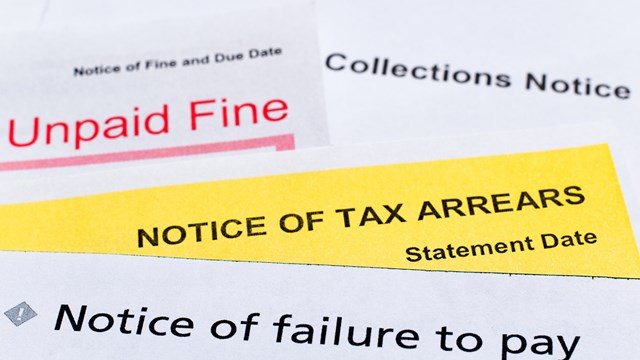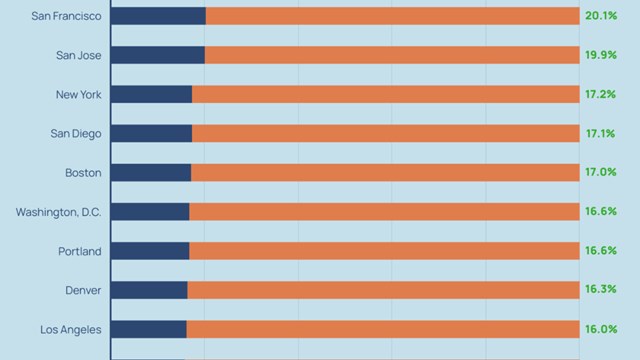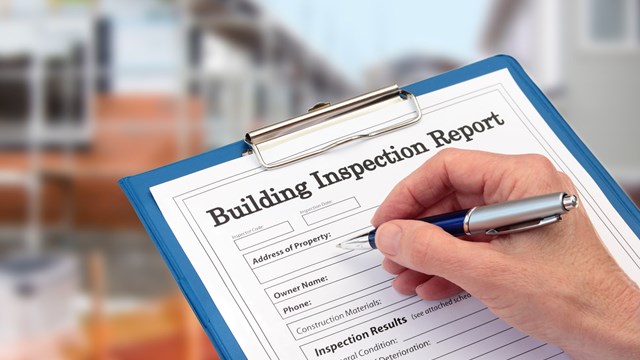Buy a motor home and travel the country. Pay for grandson Johnny's college education. Fix up that old kitchen you've been complaining about for decades. These are things you've been wanting to do for years and years, but, though you've worked hard all your life, there never seemed to be enough "extra" to make it all happen.
The reverse mortgage—which came into prominence in the mid-1990s when the Federal Housing Administration (FHA) began to insure such loans—is a loan available to people 62 years and older who want to use the equity in their primary residence, whether that's a single-family house, townhome, or a condo, to access cash. Many people in this age bracket might think that the only way to use the equity from their house is to sell it, but that's not necessarily so. This newer loan structure, sometimes called a home equity conversion mortgage (HECM), is becoming more widely used by condo and townhome owners, and has even recently become available to some co-op owners outside of New Jersey.
Tapping Your Equity
"[A reverse mortgage] is a way to use equity in your house, to stay in your house, and do whatever it is you choose to do with money," says Carol Ramer, a reverse mortgage specialist for Financial Freedom Senior Funding Corp.
According to Jennifer Monaghan, a spokesperson for the New Jersey Housing and Mortgage Finance Agency (HMFA) of the New Jersey Department of Community Affairs, the reverse mortgage "allows homeowners to tap into the equity of their existing homes without having to make monthly mortgage loan payments. The loans can be paid back at any time, but usually are paid when the house is sold either by the owner or the owner's estate."
Given the rising values of homes in New Jersey the idea of a reverse mortgage should be of particular interest to seniors, who are now sitting on an even bigger goldmine than they might have thought. The amount that a borrower is able to receive is based on a formula that looks at a borrower's age, the interest rate and the equity in the home. The more equity you have in your home, the more money you can get out of it.
"Property values in New Jersey are good and have been growing remarkably fast," reports Ramer. "I think that the volume of business shows that seniors are interested in this type of program."
How to Apply
Although reverse mortgages are not yet available to cooperative shareholders in New Jersey and only became available to New York City co-ops in 2002, condo owners may still access the cash in their home with relatively little fuss. In fact, the application process is very similar to getting a regular mortgage.
First of all, know that not all lenders will offer reverse mortgages to their customers.
"It can be a mortgage banker, it can be a mortgage broker, it could be a bank, but it's not going to be every one," notes Peter Bell, president of the National Reverse Mortgage Lenders Association (NRMLA). "To some extent, you're looking for the needle in the haystack. There are probably 8,000 institutions around the country that originate mortgages but probably only 300-500 that originate reverse mortgages."
"The lender who offers this specialized type of mortgage will be the exception and not the norm," he adds.
The first step is to find a mortgage lender, bank, credit union or savings and loan association that offers reverse mortgages. A good place to start would be NRMLA's Web site (http: //www.reversemortgage.org), which offers a state-by-state list of companies that originate reverse mortgages. According to Bell, only the lending institutions that have agreed to NRMLA's code of conduct and best practices program are listed here.
Another useful website to check out is www.aarp.org/revmort/, which offers useful information on the features of this unique program. According to the Reverse Mortgage Calculator from www.rmaarp.com, for a home worth $250,000, a homeowner could get a single lump sum advance or a home equity credit line equal to $140,250 through a HECM loan, and $77,643 from a Home Keeper mortgage. A monthly loan advance would be the equivalent of $903 with HECM and $580 with Home Keeper.
For a home worth $500,000, a homeowner would be eligible for a single lump sum advance or a home equity credit line of $163,922 from a HECM loan, and $103,347 from Home Keeper. A monthly loan advance would be the equivalent of $1,056 with HECM and $787 with Home Keeper.
Homeowners can also call 1-800-NJ-HOUSE and ask to speak to an HMFA reverse mortgage representative.
Another interesting resource is Financial Freedom's Web site (www.financialfreedom.com), which offers a calculator that shows you how much money you could potentially get from your home. You can also dial their toll-free number (888-738-3773) to talk directly to a reverse mortgage specialist who can run numbers as you speak.
Once a borrower has gone to the lender and learned about available loans, a reverse mortgage counselor steps in. The senior must complete a federally mandated consumer education session, where they will review the reverse mortgage transaction and mechanics of it with the HUD-approved counselor.
"The reverse mortgage counselor will review the lender's proposal with the borrower and show them how it will work for them," explains Bell. "The counselor will explain what a reverse mortgage is and how it works. With a knowledgeable consumer, a telephone session might only take 45 minutes, whereas if you're somebody who is really concerned about the process or just doesn't grasp it, the session could take a couple of hours."
Only after you've completed the counseling session can you can begin the loan application process—and you'll have your funds in-hand within about 60 days, according to Bell. When you apply, you'll need proof of age of all members of the household, amount and type of payments desired, and information about any liens or mortgages on the property. You should expect to pay the customary mortgage closing costs, with the major fees being the origination fee to the lender and the FHA mortgage insurance premium.
Insurance is also important. "Every so often, we find that the house is not adequately insured," says Ramer, "in which case the borrower has to up the insurance. All houses are appraised."
Condo owners should know that their condominium has to be FHA-approved before the mortgage can go through. This involves what's called a spot approval condo questionnaire, which means your condo association must answer a few questions about such things as the number of units owned versus the number of units that are rented. In most cases, the spot approval goes through without a hitch, but might just add a little extra time and few extra fees to the mortgage process.
"In my experience I have never had a condo community that did not qualify under the spot approval," comments Ramer.
Paying It Back
The reverse mortgage loan becomes payable when the borrower moves, does not occupy the home for twelve months due to health reasons, or dies.
"No debt will ever be passed along to the estate or to the heirs," explains Monaghan. "The loan may be repaid by selling the home (any remaining equity after the sale of the home goes to the heirs of the estate) and by paying off the loan, either with a conventional mortgage or through other means, if they wish to keep the house."
What if the market bottoms out and the estate just can't get enough money for the property to cover repayment of the loan? According to Bell, these loans are considered "non-recourse loans," which means that the lender gets paid back the balance after the house is sold and the heirs are not responsible for any other amount. If the value is greater than the loan pay-off, the occupant or his/her heirs get the remaining value after the reverse mortgage is paid off.
"If the loan exceeds the value of the property, no payment above the value of the net sales proceeds of the property will be required," confirms Monaghan.
"If this happens, it is more a problem for the bank than the owner's heirs," agrees David J. Strause of Guardhill Financial Corp. based in Palm Beach, Florida.
How You Take Your Money
With a reverse mortgage, you can receive a cash lump sum, monthly annuity income, a line of credit to draw upon as needed, or a combination of these from the equity in your home. These payments will not affect your Social Security or Medicare eligibility benefits, because the program is not based on need.
The ideal candidate, according to Strause, is someone over the age of 62 for whom the residence is the primary one. Credit is not an issue.
"That's the beauty of it," Bell agrees. "We're not looking at someone's income or credit history. We're not underwriting them. We're only underwriting their age and the value of the property."
Reasons people wouldn't qualify might be that they don't have enough equity in their home due to existing mortgage liens, the co-borrower isn't 62, or the property requires excessive repairs.
When you're thinking of getting a reverse mortgage, know that it doesn't necessarily matter how much your property is worth.
"I've seen this type of mortgage on homes from $60,000 in places like Detroit to homes over $20 million on the coast of California," states Bell.
One exception might be Financial Freedom's proprietary reverse mortgage program, a jumbo reverse mortgage that uses a "cash account" and is for higher end homes of $500,000 and above.
Celebrate Your Independence
Borrowers might use the funds they receive from their loans for a variety of reasons, according to Monaghan.
"Basically, you can use your house to stay in your house, have a better quality of life, and do the things you want or need to do," advises Ramer, who has been a reverse mortgage specialist for seven years. "People who do this are not hung up on leaving it all at the end. Common uses for the money include paying property taxes, health care costs, credit card debt, live-in help, vacations, or maybe even the college education of a grandchild. Some even buy second homes with the money."
Ramer, whose oldest client was 104, says that the bottom line for most people regarding reverse mortgages is a sense of financial independence and the idea that they can carry themselves independent of their children. Can older homeowners live without a reverse mortgage? Sure. But given the benefits, it might be worth looking into.
Domini Hedderman is a freelance writer living in Pennsylvania.







Comments
Leave a Comment